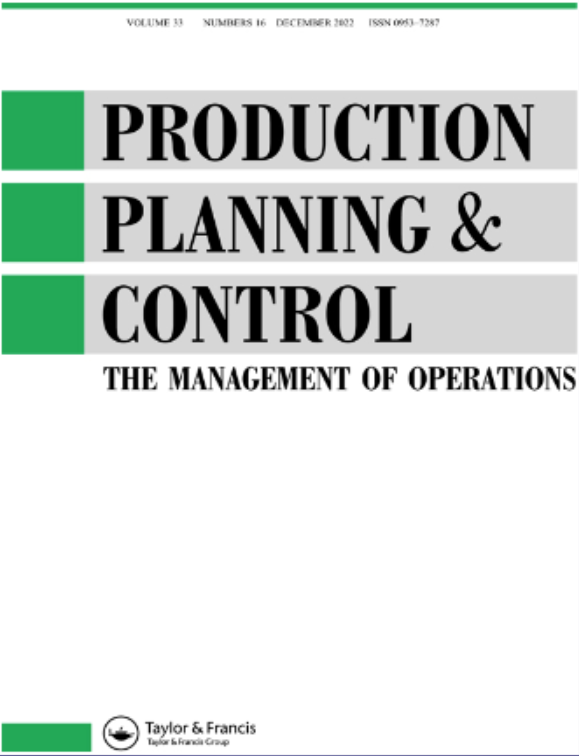Are food supply chains taking advantage of the circular economy? A research agenda on tackling food waste based on Industry 4.0 technologies
IF 5.4
3区 管理学
Q1 ENGINEERING, INDUSTRIAL
引用次数: 17
Abstract
Abstract This article proposes a means of exploring the use of circular economy (CE) business models to deal with losses and waste in food supply chains. First, the current state-of-the-art application of CE in the food waste area was identified through a systematic literature review. The main findings concerning the current debate around this topic were: (a) the Regenerate and Loop business models are the most studied models in analyzing methods of reuse and recycling of food waste through biological cycles; (b) focal companies and customers are the most often investigated tiers of supply chains; and (c) the investigation of CE and food waste has so far focussed on how to efficiently manage the waste already generated by the system, instead of how to avoid waste generation. Second, in terms of managerial contributions, based on the findings from the systematic literature review, this article proposes an expansion of the application of CE business models to deal with food losses and waste, considering the role of the retail tier, the use of Industry 4.0 technologies and the shift away from the waste reuse approach towards reducing waste generation using CE business models, such as Optimize and Share. Additionally, in terms of academic contributions, this article presents a comprehensive agenda for future research and extends the body of knowledge with regard to the synergy between CE and Industry 4.0 by integrating these two topics with the issue of food waste and loss, a sustainable development target.食品供应链是否利用了循环经济?基于工业4.0技术解决食物浪费的研究议程
本文提出了一种探索利用循环经济(CE)商业模式来处理食品供应链中的损失和浪费的方法。首先,通过系统的文献综述,确定了当前食品垃圾领域中CE的最新应用。关于当前围绕这一主题的辩论的主要发现是:(a)再生和循环商业模式是通过生物循环分析食物垃圾再利用和再循环方法的研究最多的模型;(b)重点公司和客户是供应链中最常被调查的层次;及(三)有关行政废物及食物废物的调查,至今都集中在如何有效管理系统已产生的废物,而不是如何避免产生废物。其次,在管理贡献方面,基于系统文献综述的结果,本文提出了扩展CE商业模式的应用,以处理食品损失和浪费,考虑到零售层的作用,工业4.0技术的使用,以及从废物再利用方法转向使用CE商业模式减少废物产生,如优化和共享。此外,在学术贡献方面,本文提出了一个全面的未来研究议程,并通过将这两个主题与食物浪费和损失问题(可持续发展目标)相结合,扩展了关于CE和工业4.0之间协同作用的知识体系。
本文章由计算机程序翻译,如有差异,请以英文原文为准。
求助全文
约1分钟内获得全文
求助全文
来源期刊

Production Planning & Control
管理科学-工程:工业
CiteScore
19.30
自引率
9.60%
发文量
72
审稿时长
6-12 weeks
期刊介绍:
Production Planning & Control is an international journal that focuses on research papers concerning operations management across industries. It emphasizes research originating from industrial needs that can provide guidance to managers and future researchers. Papers accepted by "Production Planning & Control" should address emerging industrial needs, clearly outlining the nature of the industrial problem. Any suitable research methods may be employed, and each paper should justify the method used. Case studies illustrating international significance are encouraged. Authors are encouraged to relate their work to existing knowledge in the field, particularly regarding its implications for management practice and future research agendas.
 求助内容:
求助内容: 应助结果提醒方式:
应助结果提醒方式:


